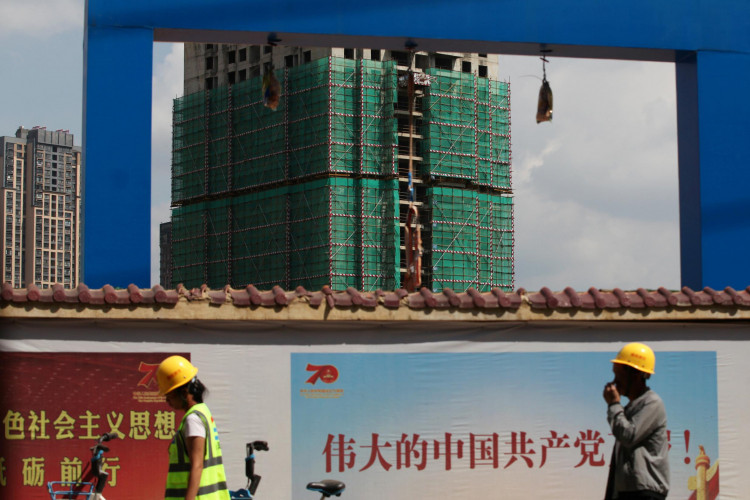Country Garden Holdings Co., a significant player in China's real estate industry, is grappling with severe financial difficulties, underscored by its failure to fulfill a coupon payment on a yuan-denominated bond. This missed payment marks the first occurrence of such financial distress for the company, igniting concerns over the potential for default amid an already troubled housing market in China.
The developer's financial challenges were brought to light when bondholders reported not receiving a 96 million yuan ($13 million) coupon payment due on a bond set to mature in 2026. Despite a 30-day grace period for the payment, the specter of default looms large over Country Garden, further complicated by a lawsuit seeking the company's liquidation offshore.
Amidst a stark downturn in the housing market, exacerbated by stringent regulatory measures like the "three red lines" policy, Country Garden has seen a precipitous drop in sales. February's contract sales plummeted by 85%, following a 75% decline in January, illustrating the profound impact of consumer hesitancy to invest in projects tied to financially unstable developers.
In a bid to navigate through these turbulent times, Country Garden has expressed its commitment to utilizing the grace period to marshal resources and avert default. The company's strategy involves bolstering sales, revitalizing assets, and curtailing administrative expenses to improve liquidity. Despite these efforts, the firm's stock in Hong Kong experienced a 4.9% decline, exacerbating a 25% loss for the year.
The distress within Country Garden is emblematic of the broader crisis afflicting China's housing market, which has persisted for nearly four years. The liquidity crisis, initially sparked by regulatory restrictions, has not spared even the more robust developers like Country Garden and China Vanke, as consumer confidence waned during the pandemic. Consequently, the sector has witnessed defaults on at least $160 billion of bonds, as estimated by Goldman Sachs.
Country Garden's predicament worsened when a creditor petitioned for its liquidation in Hong Kong, threatening to erode consumer confidence further in the once-dominant developer. The company's vast portfolio of over 3,000 projects nationwide is now under scrutiny as it contends with a liquidity crisis that has led to a significant contraction in home sales.
As Country Garden endeavors to restructure its offshore debts and renegotiate terms with onshore creditors, the real estate sector and investors closely monitor the unfolding situation. The company's struggles reflect the systemic challenges facing China's housing market, marked by declining sales, tightening liquidity, and growing financial instability among developers. The outcome of Country Garden's efforts to stabilize its finances will likely have broader implications for the real estate market and China's economic landscape.
Reuters, Bloomberg, and South China Morning Post contributed to this report.






